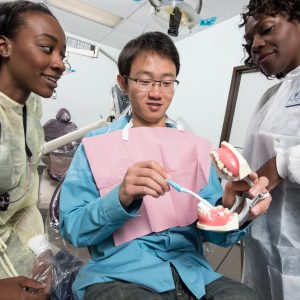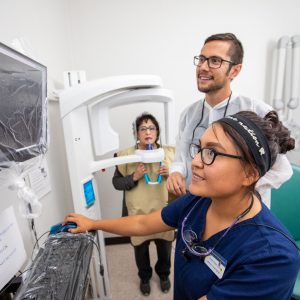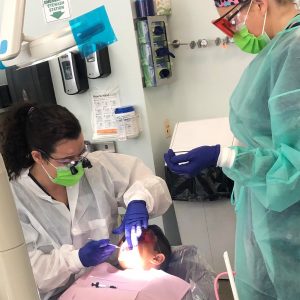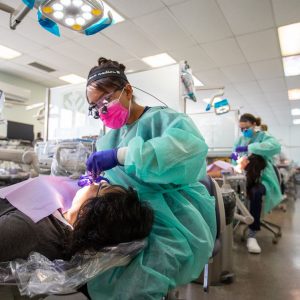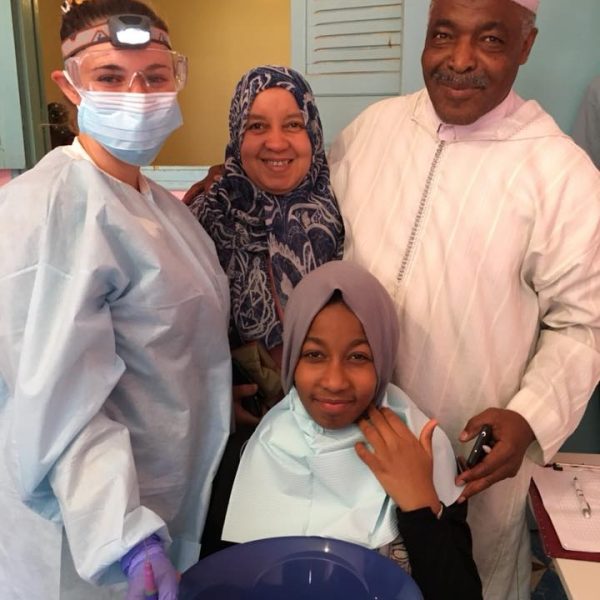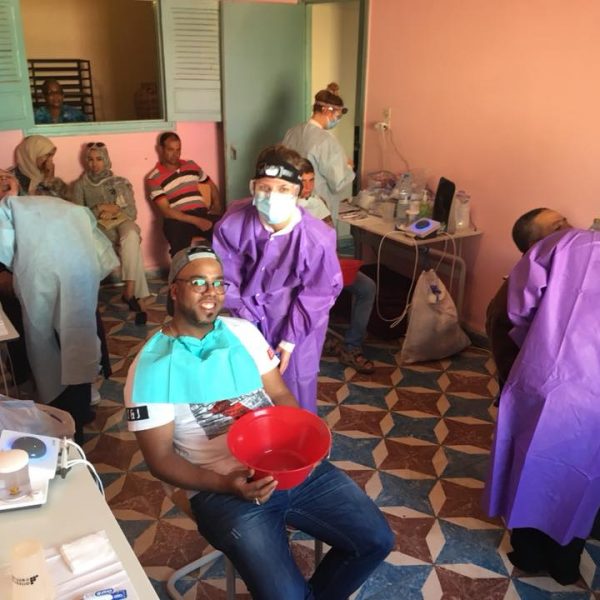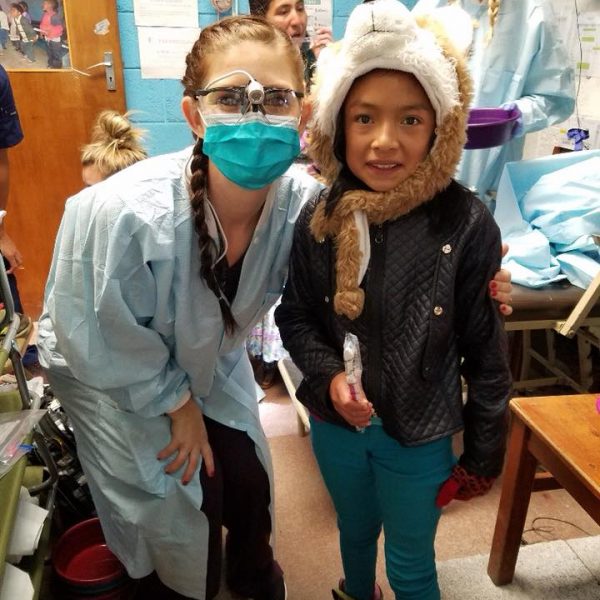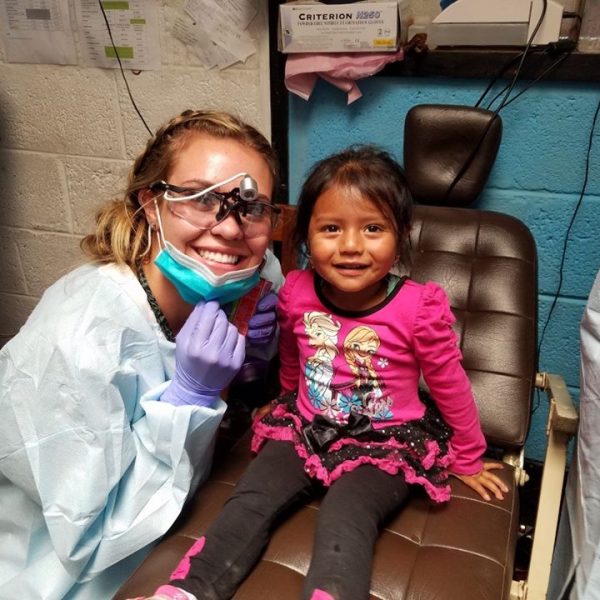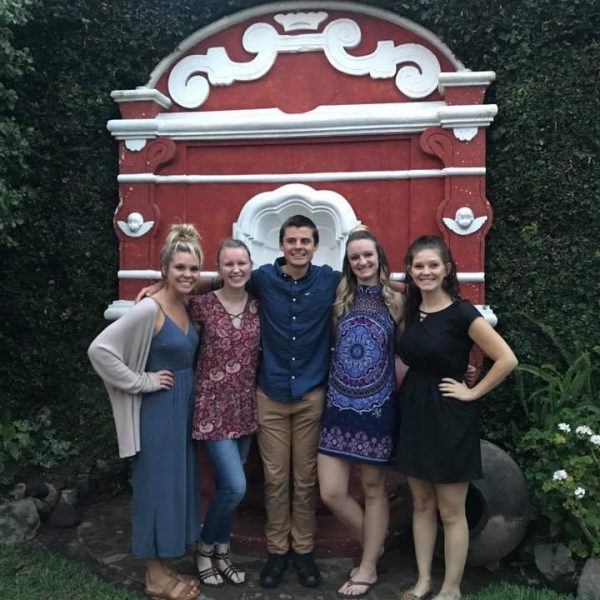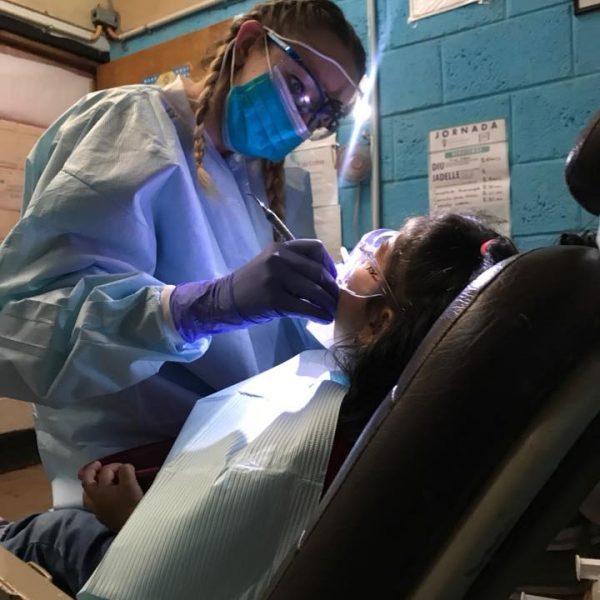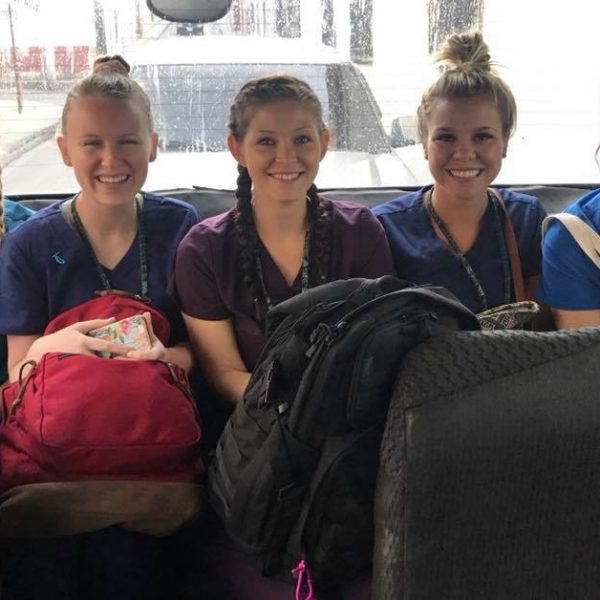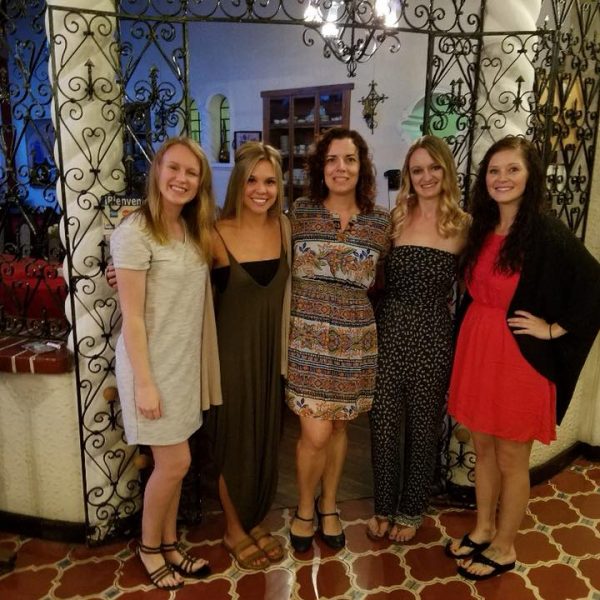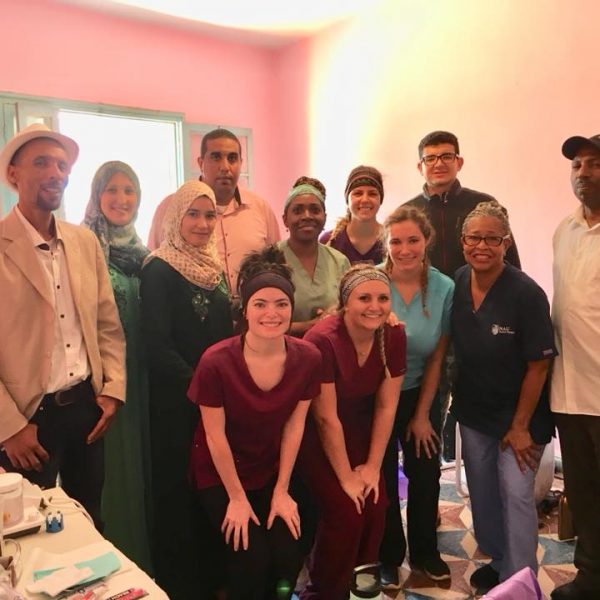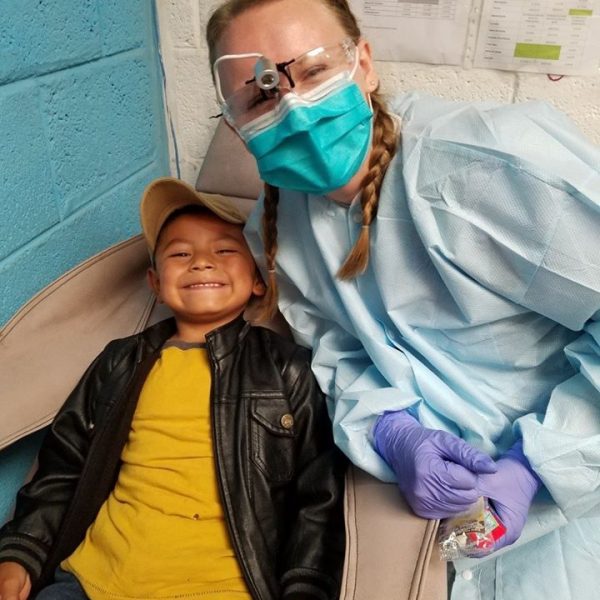Bachelor of Science in Dental Hygiene
Program Overview & Information
The Northern Arizona University Bachelor of Science in Dental Hygiene Program has established a national reputation for excellence in educating dental hygiene professionals since its inception in 1973. It is the only program in Arizona that awards a Bachelor of Science in Dental Hygiene upon successful completion.
The program spans two years and comprises four 16-week semesters, a 7-week summer session, and a 2-week externship, which is completed prior to the start of fall classes. Courses are exclusively offered at the Flagstaff Mountain Campus. Additionally, students are required to complete approximately two years of prerequisite coursework before entering the program.
Dental Hygiene Degree Progression Plan 2022/2023
Program Information & Additional Fees and Expenses
The NAU Dental Hygiene Program requires a separate application and acceptance process. Due to a limited number of spaces available, admission is competitive. Meeting the minimum criteria only qualifies you to submit an application and does not guarantee acceptance into the program. Students who are not admitted must reapply each year, as there is no waitlist.
Students will benefit from a well-equipped, state-of-the-art clinical facility. The program features an 18-chair clinic and dental laboratory where students develop and practice dental hygiene procedures using advanced dental equipment, including Velscope, Spectra, and intraoral cameras. Radiographic techniques are taught in a dedicated 5-chair facility, equipped with a panoramic x-ray machine and digital x-ray technology. Additionally, the student seminar and computer center, which offers a scenic view of the San Francisco Peaks, provides a comfortable space for accessing web courses and studying between classes.
The Dental Hygiene Department was awarded the Provost Award for Excellence in Global Learning on April 23rd, 2014, and April 24th, 2018.
Each year, the Dental Hygiene Department participates in outreach initiatives to underserved communities worldwide, providing essential dental hygiene services to those in need. Through the International Community Partnership, dental hygiene students have the unique opportunity to engage with diverse cultures and contribute to global health initiatives, enhancing their educational experience at NAU. This experience helps students understand the role of advanced public health practitioners in dental hygiene while collaborating as part of an interdisciplinary team.
Some rotations may require students to be away for several days or longer. For the Hopi rotation, located in Polacca, AZ, approximately 2.5 hours from Flagstaff, the NAU Dental Hygiene Department provides faculty-supervised housing and transportation. Students who prefer to drive themselves will be responsible for ensuring timely arrival at the Hopi Clinic each day. Additionally, students are expected to arrange their own transportation to the Yavapai Clinic, returning the same day. Carpooling with fellow students is encouraged.
What is a Dental Hygienist? Accordion Closed
Job Description According to the ADA
A career as a dental hygienist offers a wide range of challenges. In the dental office, the dentist and the dental hygienist work together to meet the oral health needs of patients. Since each state has its own specific regulations regarding its responsibilities, the range of services performed by hygienists varies from state to state. Some of the services provided by dental hygienists may include:
patient screening procedures; such as assessment of oral health conditions, review of the health history, oral cancer screening, head and neck inspection, dental charting, and taking blood pressure and pulse
taking and developing dental radiographs (x-rays)
removing calculus and plaque (hard and soft deposits) from all surfaces of the teeth
applying preventive materials to the teeth (e.g., sealants and fluorides)
teaching patients appropriate oral hygiene strategies to maintain oral health;
(e.g., tooth brushing, flossing, and nutritional counseling)
counseling patients about good nutrition and its impact on oral health
making impressions of patients’ teeth for study casts (models of teeth used by dentists to evaluate patient treatment needs)
performing documentation and office management activities
Click here for more information on what a Dental Hygienist does
WREB/NDHBE Exam Information Accordion Closed
The NAU Dental Hygiene Clinic is a WREB testing location for Local Anesthesia Clinical & Dental Hygiene Clinical.
Click here for more information on the WREB Exams
POLICY ON AUTHORIZATION FOR STATE, REGIONAL, AND NATIONAL BOARD EXAMINATIONS (WREB / NDHBE) – The Dental Hygiene Department has an obligation to withhold recommending a student to take a board examination if a student is considered to be an unsafe or unethical practitioner. Graduation from an accredited dental hygiene program does not guarantee a graduate will perform at a passing level in a stressful board environment. Students are responsible for all exam registration fees and for finding an appropriate patient for the clinical board examination. AFTER graduation and the student has taken the clinical board, the instruments used can be sterilized during the 5 weeks of summer school. The graduated student CANNOT use NAU facilities for ANY procedures e.g. screenings, radiographs, etc. due to legal implications resulting from the graduate not being covered under NAU student statutes.
WREB / NDHBE – Each student is responsible for contacting the state board of dentistry in the state they wish to practice. Additional courses and/or fees may be required depending upon the state’s regulations.
In the event a student fails the clinical board and has to remediate:
1. Student is responsible for submitting paperwork from WREB/ NDHBE Board Examiners to NAU.
2. Students must reapply to NAU.
3. Student must enroll in and complete DH 313 (Didactic and Clinic)
4. If they fail to meet the summer deadline the student must enroll in and complete Fall DH 411 (Clinic and Didactic)
5. The student is responsible for all fees associated with enrollment at NAU and in DH courses.
STUDENTS’ RESPONSIBILITY TO MOCK BOARD PATIENTS
Dental hygiene students are responsible for completing all treatment for their mock board patient. Under no circumstances should patients used for mock boards be abandoned after the student has completed the requirements. It is the student’s responsibility to communicate to the patient the recommended treatment plan, obtain informed consent for the patient to participate in the capacity of mock board patient, and ensure the patients are scheduled for completion of care if the student is unable to complete the treatment plan in its entirety for mock board patients.
Professional Licensure by State Accordion Closed
https://nau.edu/compliance-and-authorization/professional-licensure-by-state/
State Licensure Information Accordion Closed
Click here for information on State Licensure
Dental Hygiene State Licensure Spreadsheet
STATE LICENSURE
Licensure is granted by each individual state. Dental hygienists practice in accordance with requirements of individual state dental practice acts. For more information regarding program licensure in other states, please visit https://www.adha.org/licensure.
DISCLAIMER: STATE OF CALIFORNIA
Students enrolled at NAU who wish to practice in the state of California must take an additional ANE/CURETTAGE/NITROUS OXIDE course because CA does not recognize AZ dental hygiene anesthesia courses. More info can be found here: http://www.swccd.edu/index.aspx?page=3822 or
https://www.cabrillo.edu/academics/dentalhygiene/expanded-duties.html or http://www.rdakits.com/
Our Dental Hygiene Program is fully accredited by the
American Dental Association Commission on Accreditation

